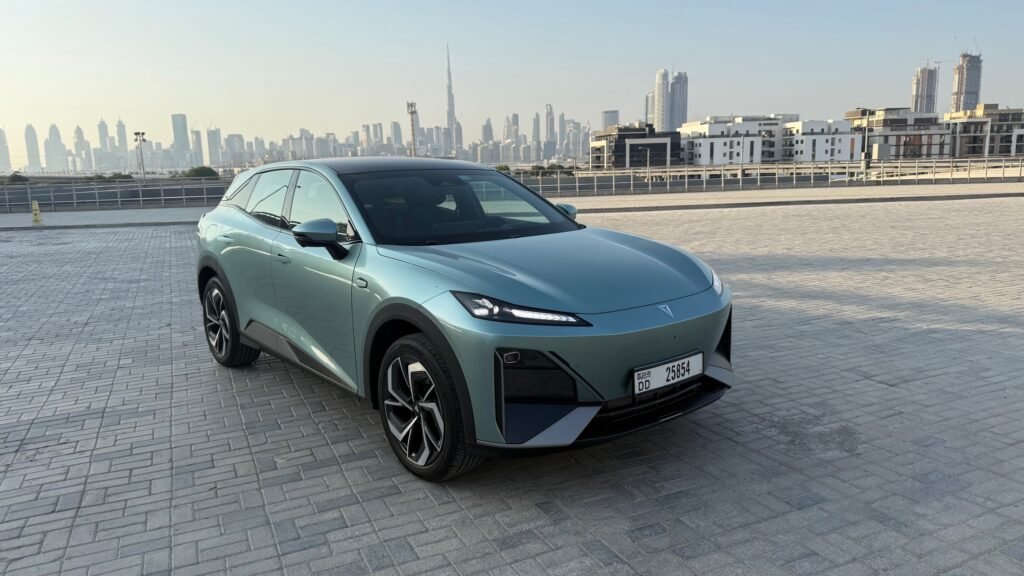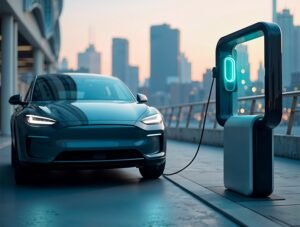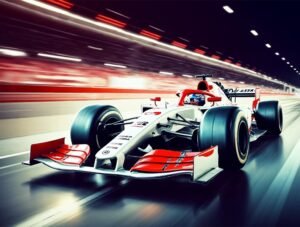As an automotive reviewer in the UAE, I’ve witnessed the influx of Chinese electric vehicles (EVs) reshaping our market. The latest arrival is the Deepal S07, a mid-size electric SUV produced by Changan’s EV arm “Deepal” (also known as Shenlan in China) . Unveiled locally by Al Tayer Motors in late 2024, the S07 marks Deepal’s regional debut and is positioned as a tech-rich crossover to compete directly with other Chinese EV offerings – and even some global rivals. With a length of 4.75 meters and a 2.9m wheelbase, it’s almost identical in size to a Tesla Model Y , signaling the segment it targets. In this review, I’ll compare the Deepal S07 to its Chinese EV peers available in the UAE, highlighting how it stands out (and where it doesn’t) in performance, technology, design, and value. I’ll also touch on the broader challenges Chinese car brands face in our market – from earning trust to establishing service networks and resale value.
Performance and Driving Experience
On paper, the Deepal S07 offers solid if not groundbreaking performance. In the UAE, it is offered in two powertrain flavors: a Battery Electric Vehicle (BEV) model and an Extended Range Electric Vehicle (EREV) variant . The BEV is rear-wheel-drive with a single motor around 160 kW (218 hp), good for 0–100 km/h in roughly 7.9 seconds . That’s on par with many compact electric crossovers – quick enough for highway merges and city sprints, but notably more sedate than dual-motor performance EVs. By comparison, the smaller BYD Atto 3 (one of the popular Chinese EVs here) does 0–100 km/h in about 7.3 seconds thanks to a 150 kW motor, while an MG ZS EV takes closer to 8.5 seconds . The S07 isn’t trying to win drag races; its focus is on smooth, efficient daily driving. In Eco and Comfort drive modes the accelerator is deliberately dulled to prioritize range, but engaging Sport mode wakes it up with more eager throttle response . The 2150 kg SUV feels “gutsy enough” around town, though enthusiasts might lament the absence of an all-wheel-drive dual-motor option for extra punch .
The EREV version of the S07 is an interesting proposition. It pairs a 1.5L turbo petrol generator with a slightly uprated 175 kW (234 hp) electric motor . This setup effectively gives you 950 km of total range (WLTP) by using the engine to recharge on the go . In a region where charging infrastructure is still growing, this range-extender could be a welcome safety net for long desert drives. Unlike a conventional hybrid, the petrol engine doesn’t drive the wheels; it simply charges the battery, so the driving feel remains pure electric. The trade-off is added complexity and a bit of engine noise when it kicks in. Still, 950 km combined range is compelling – no more range anxiety on a road trip from Abu Dhabi to Muscat and back. Other Chinese EVs here don’t yet offer such a range-extender solution. Brands like BYD and MG have stuck to pure BEVs or plug-in hybrids; for instance, BYD’s EVs (Atto 3, Han sedan, etc.) deliver around 400–500 km range on battery alone, while Li Auto (not in UAE yet) and Great Wall experiment with range-extended tech in China. Deepal is bringing that concept early to our shores.
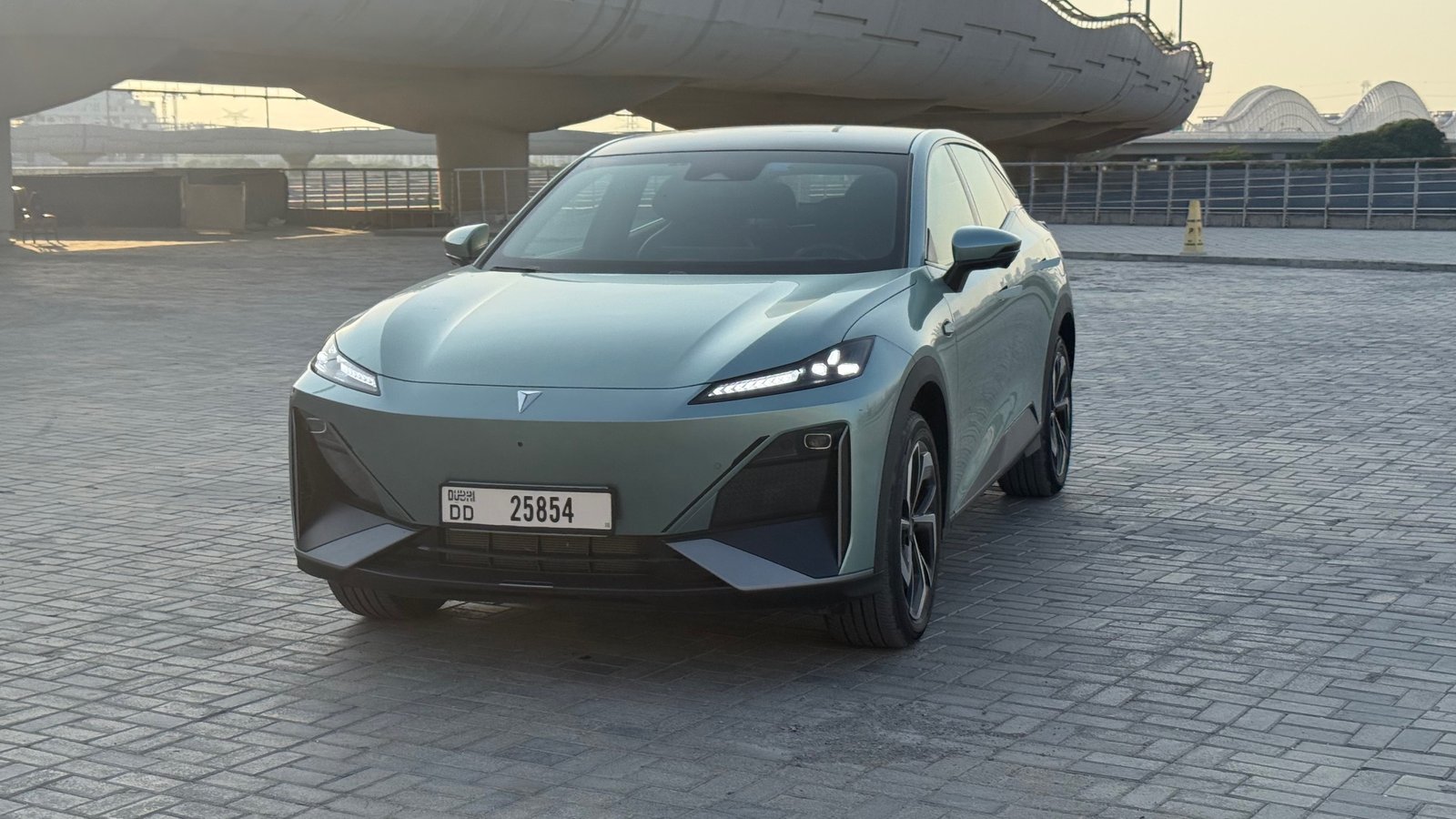
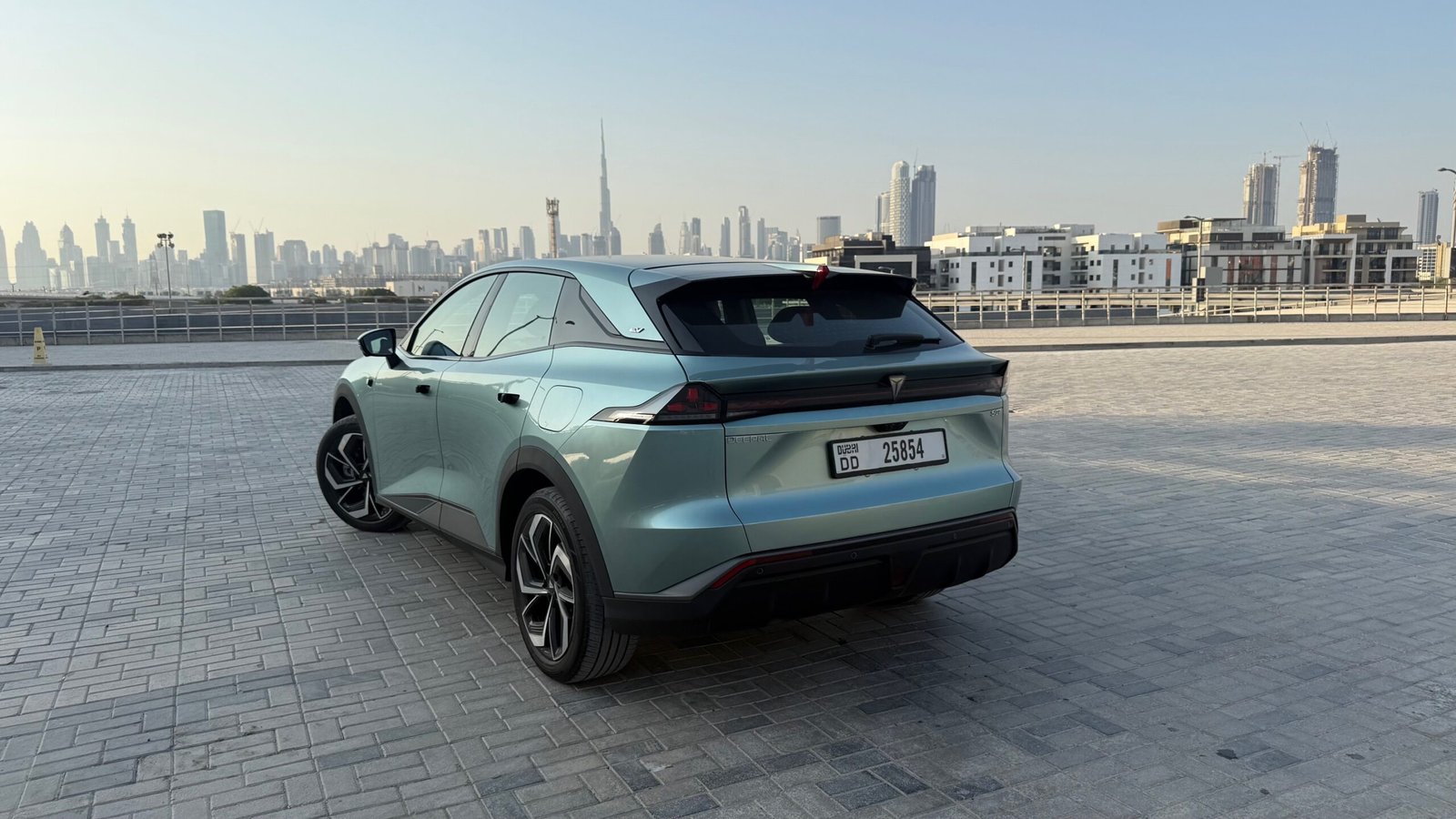
Technology and Innovation
Where the Deepal S07 really shines is in technology and cabin innovation. This SUV was co-developed with tech giant Huawei, and it shows in the gadgetry on board. The first thing you notice stepping inside is the massive 15.6-inch infotainment touchscreen mounted in the center – and it’s not just fixed in place; it can swivel electronically 15° toward the driver or passenger . It’s a party trick perhaps, but also genuinely useful if the passenger wants to fiddle with navigation or the driver wants it angled for better visibility. The interface runs on Huawei’s Harmony OS, which feels slick and smartphone-like. It supports wireless Apple CarPlay and Android Auto out of the box , unlike some earlier Chinese cars that lacked Google integration.
Deepal has loaded the S07 with an Augmented Reality Head-Up Display (AR HUD) that projects navigation arrows and speed info onto the windshield . During my drive, having turn-by-turn directions floating out over the road ahead felt like something out of a high-end German luxury car. It minimizes the time your eyes stray from the road and adds to that “future car” vibe that Deepal is going for. Few rivals in this price range have AR HUD – Xpeng’s G6 and Nio ET5 (if/when Nio enters here) offer similar, but an MG or BYD Atto 3 certainly doesn’t.
The S07 also boasts advanced driver-assistance systems developed with Huawei. It comes with a full suite of Level 2 ADAS: adaptive cruise control, lane-keeping assist, blind spot monitoring, automatic emergency braking, and so on – pretty much expected nowadays. Notably, a 2025 update in China added Huawei’s latest autonomous driving package to the S07 , including smarter lane-centering and automated highway lane changes. It’s unclear if the UAE models have this exact system yet, but the hardware (cameras, radar) seems to be in place. In use, the lane centering worked well on highways, gently nudging the car to stay between lines without the ping-pong behavior early systems had. That said, it’s not at the “hands-off” stage – you still need to supervise, unlike more advanced systems in some luxury EVs. For context, Xpeng’s X Pilot and Nio’s NOP+ in their flagship cars arguably offer more advanced semi-autonomy (and even Lidar in some cases), whereas the Deepal’s system is competitive with the likes of Tesla’s basic Autopilot or Hyundai’s Highway Driving Assist. It’s a big leap from what MG or Geely offer in their budget EVs.
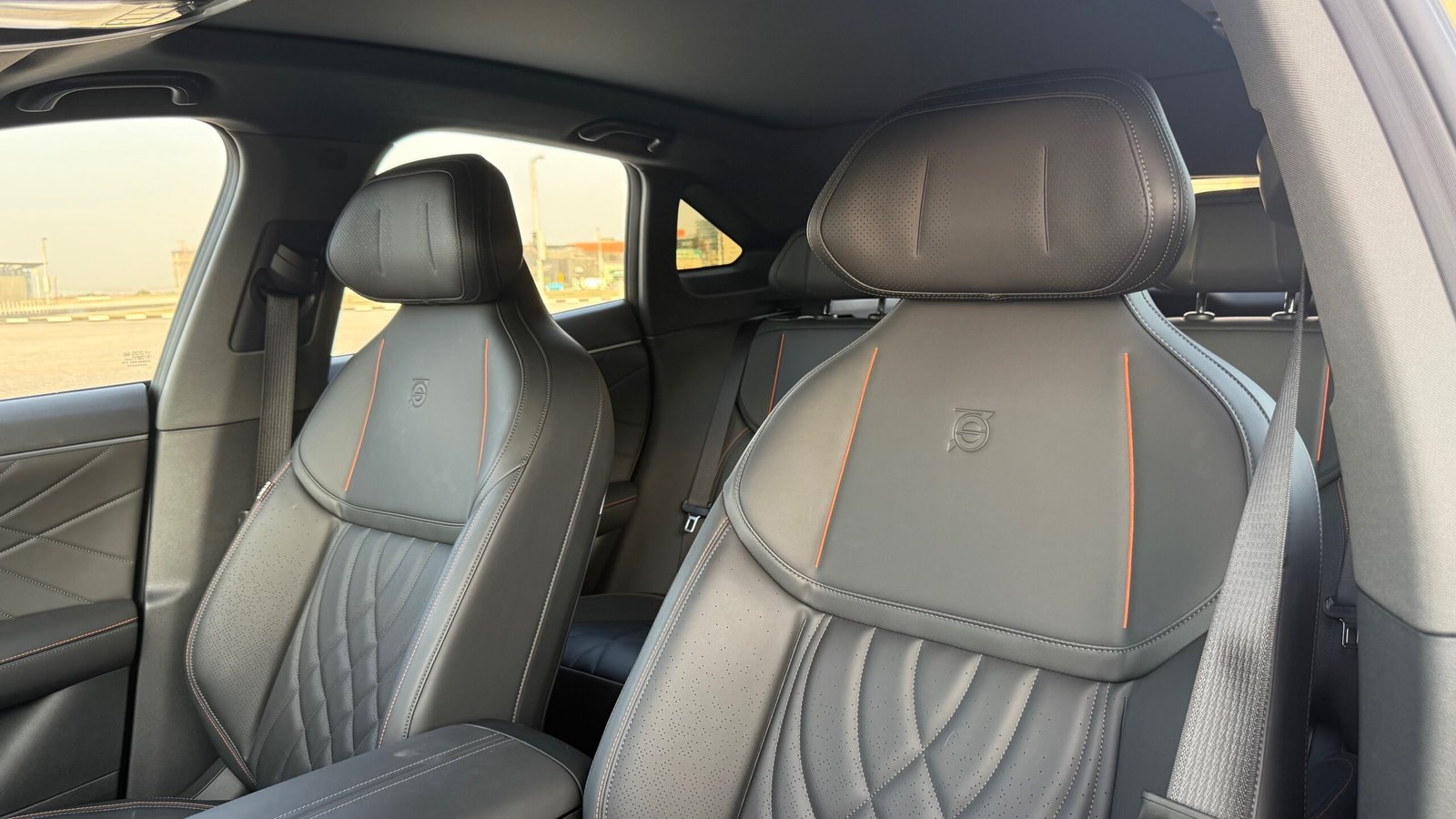
Cabin tech extends beyond screens and sensors. The audio system in the S07 deserves mention: Deepal fitted a premium 14-speaker setup (with speakers even integrated into the headrests) and active noise cancellation tech . The result is an impressively immersive sound – I played some orchestral music and the clarity and surround effect were on par with systems in much pricier European cars. The active noise cancellation keeps the cabin hushed on the highway; apart from some faint wind noise around the frameless windows, you barely notice how fast you’re going. This quietness and sound quality truly shames some rivals – for example, the Tesla Model Y’s audio and insulation feel spartan by comparison, and even the BYD Atto 3’s system (while decent) doesn’t envelop you like the S07’s does .
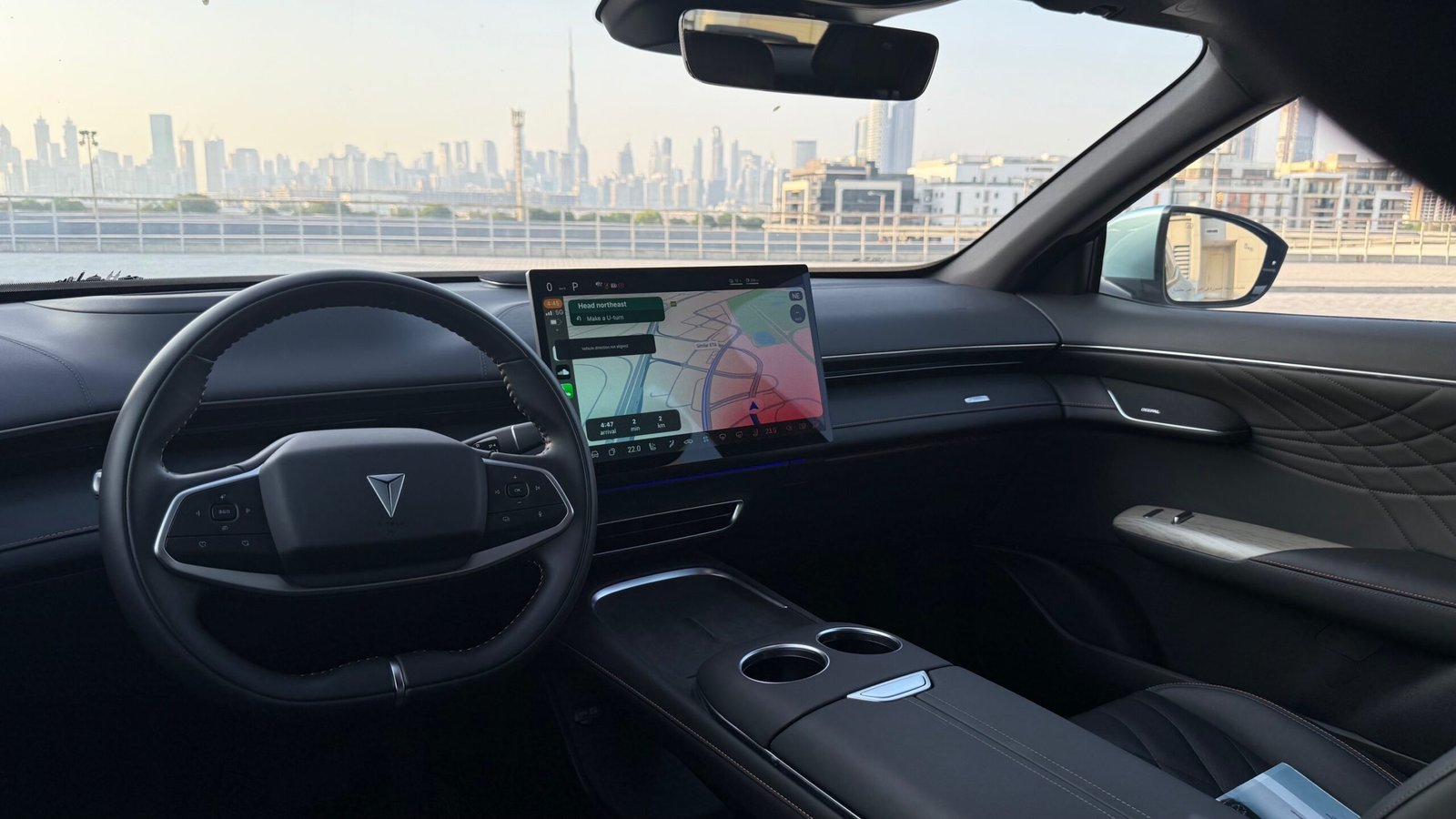
Charging tech on the Deepal S07 is one area that’s merely average. The car supports up to 93 kW DC fast charging, which is a bit behind the curve . In practice, that means about 45 minutes to go from 10% to 80% charge on a high-power charger . Competing EVs like the Hyundai Ioniq 5 or Kia EV6 (not Chinese, but key rivals in the segment) can do the same in under 20 minutes thanks to 800V architecture, and even the upcoming Xpeng G9 boasts 300 kW charging for ~20 minute fast-charges . Most Chinese EVs in the UAE right now (MG, BYD) also charge in the 50–100 kW range, so the S07 isn’t at a disadvantage among its peers – but as new models with 150 kW+ charging arrive, this could become a weak point. On the plus side, 11 kW AC charging is standard for home or workplace, and Vehicle-to-Load (V2L) capability means you can run appliances off the car’s big battery (think camping or emergency power) . I tried plugging in a laptop and mini-fridge during a photoshoot, and the S07 had no trouble powering them – a cool party trick that not all rivals (except perhaps BYD) offer.
Design and Build: Futuristic Fliar with International Influence
The Deepal S07’s design is immediately eye-catching – if somewhat derivative – blending futuristic cues with practical SUV proportions. This is a vehicle that was designed in Turin, Italy under a team led by a former BMW designer, and you can see the European influence. Up front, it wears a sharp, pointy nose with slender “petal-shaped” LED headlights inspired by flowers . A full-width LED light bar spans the rear, giving a high-tech signature at night. The S07 has a sleek coupe-like roofline that gently slopes down, avoiding the boxy look of some competitors . In fact, at first glance, more than one colleague remarked it reminded them of a Lotus or a Lexus – it has that sporty crossover stance. Deepal even touts that the body’s dimensions follow the “golden ratio” for pleasing proportions . I’m not sure about that, but I do find the S07 well-proportioned, with a planted width and just enough aggressiveness in its bumper intakes to look sporty without being ostentatious.
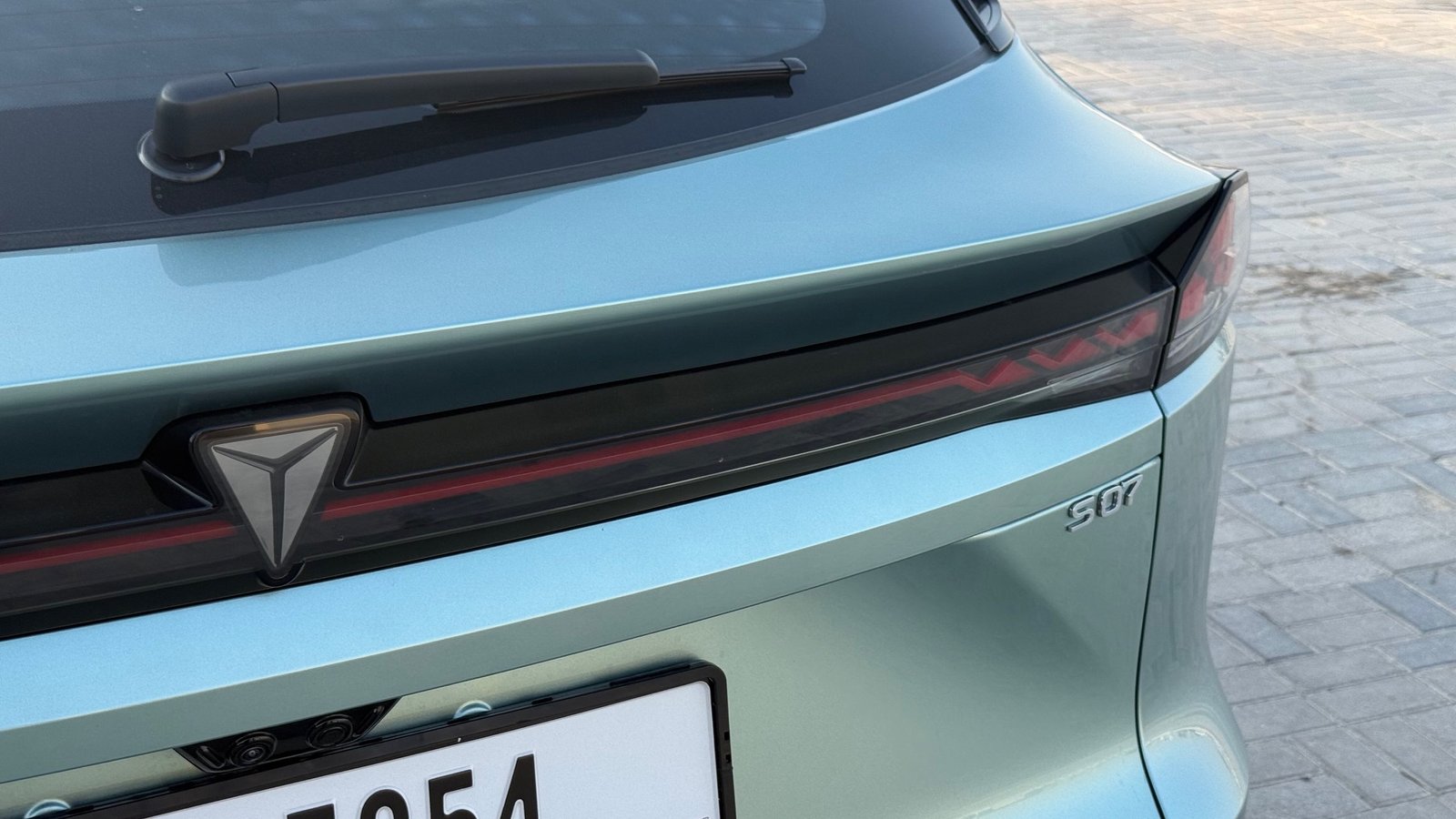
The interior design is arguably the S07’s strongest aspect. Stepping inside, I was immediately impressed by the quality of materials and the clean, high-tech layout. If you’re coming out of a mainstream brand, you might be surprised: the S07’s cabin fit-and-finish can “shame Tesla” in perceived quality . Surfaces are covered in soft-touch plastics, faux-leather with contrast stitching, and even suede-like trim in places. There’s a sophisticated wraparound dashboard that integrates ambient lighting and flows into the center console, which Deepal says was inspired by luxury yachts . It definitely gives a cockpit-like feel. Crucially, there are almost no physical buttons – just two scroll wheels on the steering wheel and window switches on the doors . Everything else is touch or voice-controlled, which contributes to the minimalist aesthetic (though it can be a nuisance for adjusting basic functions like mirror position buried in the screen menus). This approach is similar to what we’ve seen in competitors like the Tesla Model Y or the Xpeng G6, but Deepal at least includes a handy drop-down menu on the screen for common shortcuts like climate and driving modes . It’s a learning curve, but after a day I found the UI logical enough.
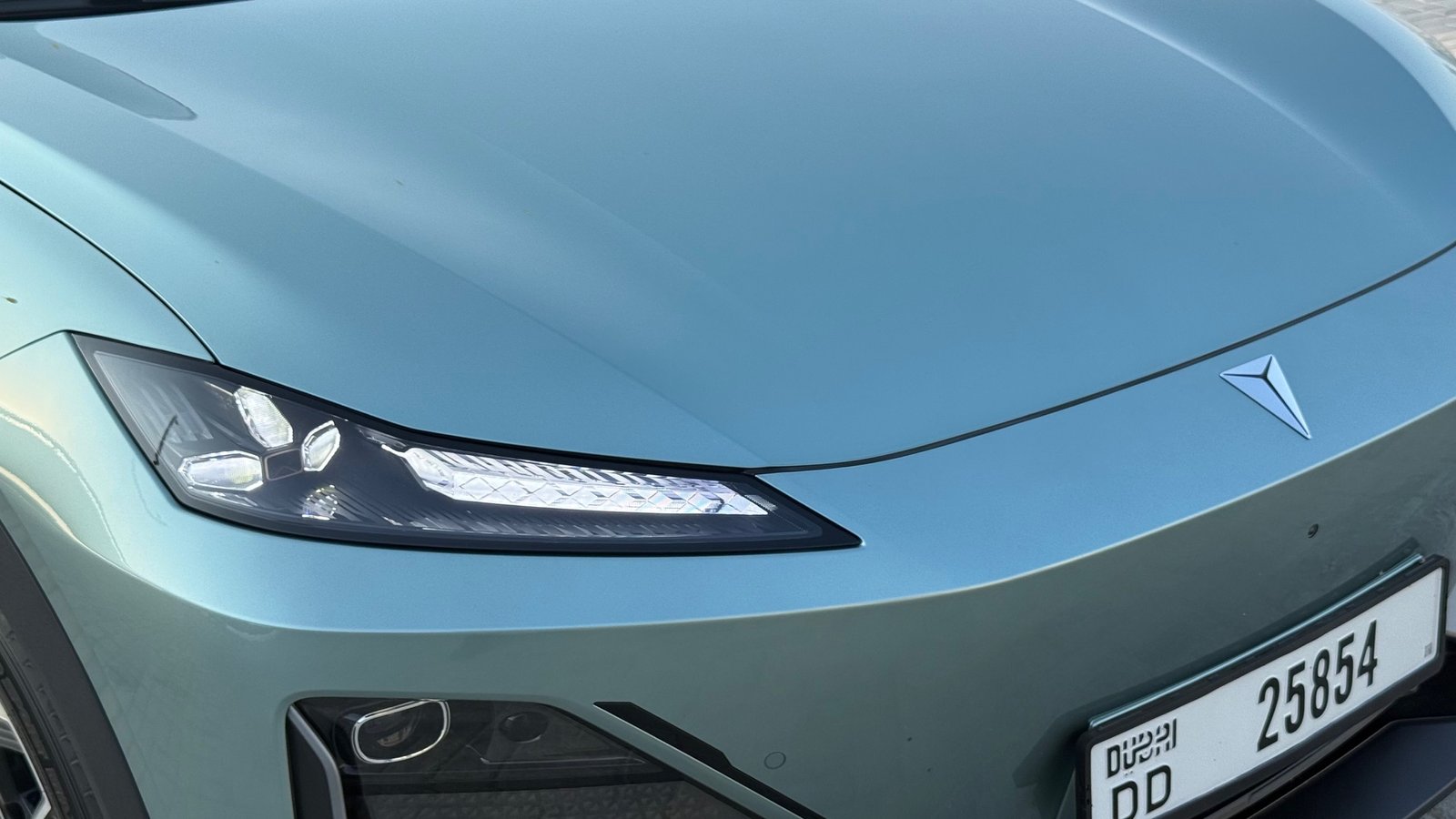
Value and Pricing
One of the biggest selling points of any Chinese car is value for money, and the Deepal S07 is no exception. The S07 starts at AED 119,900 in the UAE for the base model , placing it in the upper-mid range of Chinese EV pricing. It’s not as dirt-cheap as some entry-level models, but it undercuts many non-Chinese rivals by a wide margin. For context, a Tesla Model Y (Long Range) is around AED 220k+ if imported, and even a smaller Hyundai Kona Electric can be AED 150k in some trims. Among its peers, the S07’s price is a bit higher than an MG ZS EV or MG4 EV (which run roughly AED 90k–105k) and also above the BYD Atto 3 (around AED 95k–110k depending on spec) . However, those models are a size class down and offer fewer features. The S07’s pricing actually overlaps with some bigger Chinese EVs: for instance, the BYD Song Plus EV (slightly larger) and the new Zeekr 5 sedan are in the AED 120k–140k bracket as well. Where Deepal pulls ahead is in the feature-to-dirham ratio – at ~120k, you’re getting technology and trim that could easily belong in a car costing AED 150k or more from other brands. It’s loaded with the advanced infotainment, HUD, audio, panoramic roof, power seats, etc., all as standard on the single trim offered . There aren’t dozens of costly options or packages – Deepal has kept it simple, which is great for buyers.
Another aspect of value is after-sales coverage, and here Deepal (via Al Tayer) has made a strong pitch. The S07 comes with a 6-year/150,000 km general warranty, plus an 8-year/150,000 km battery warranty . That’s a confident statement on reliability. This outdoes many rivals – for example, Tesla typically offers 4 years on the vehicle and 8 years on battery (or 192,000 km for battery). Geely and MG in the Middle East have offered up to 5 or 6 years warranty as well, recognizing that warranty can ease new buyers’ concerns . With Deepal matching the longest in class, it suggests they are serious about building trust. Additionally, Al Tayer Motors is an established dealer (known for Ford, Jaguar, etc.), so service support should be decent. They’ve even opened dedicated Deepal showrooms and service centers in Dubai and Abu Dhabi . This kind of backing is crucial. Many buyers might be trying a new brand for the first time, and knowing a top-tier local dealer stands behind it (with spare parts and service infrastructure) greatly improves the value proposition.
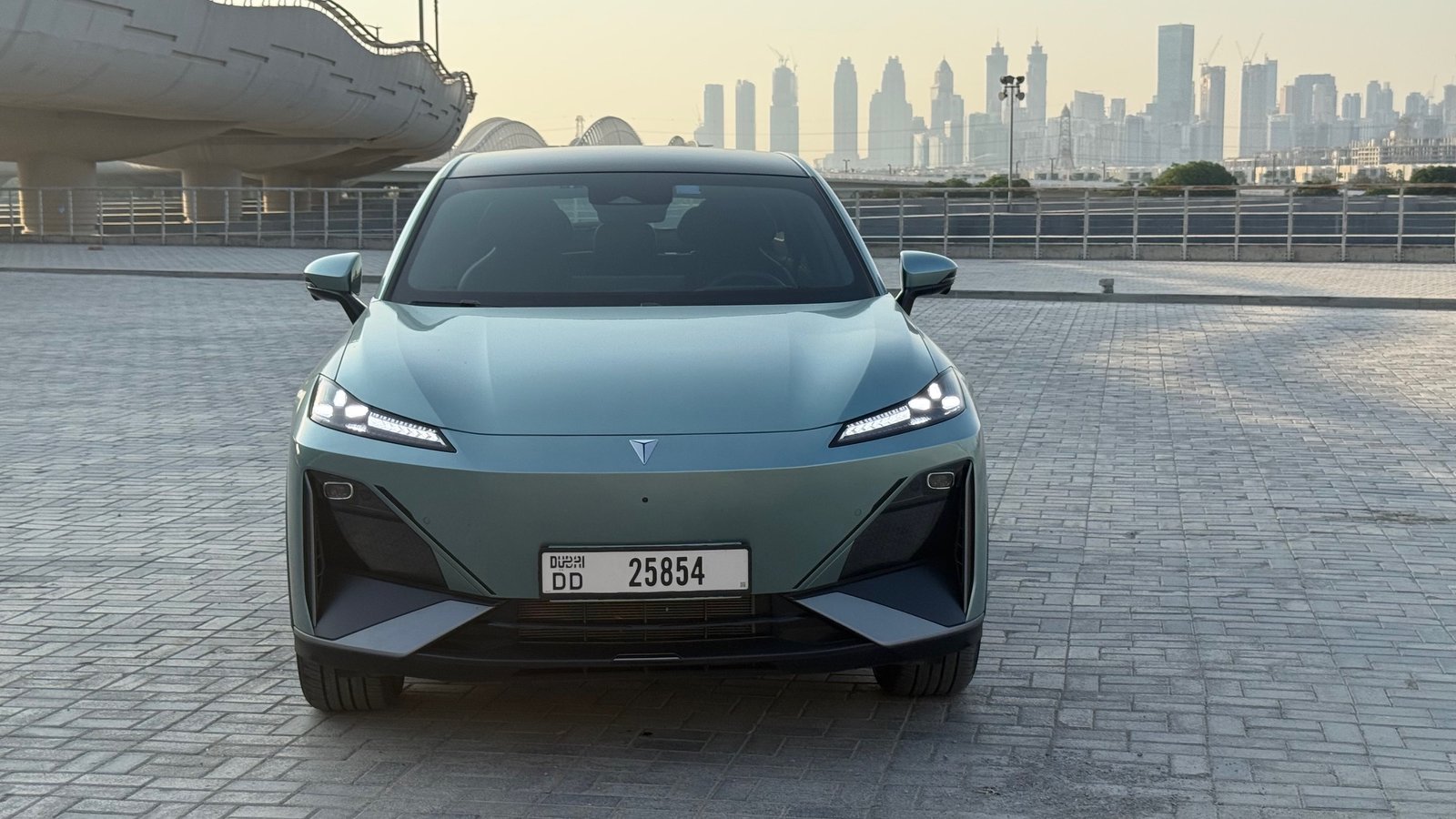
Of course, value isn’t just about purchase price – running costs and resale factor in. On running costs, the S07 as an EV will be far cheaper to “fuel” than any petrol SUV of similar size – electricity rates in the UAE make charging dramatically cheaper per km than petrol. Deepal also touts an energy consumption of ~18.6 kWh/100km , which is reasonably efficient for a vehicle of this size (about the same as a Tesla Model Y in real-world use). If you charge at home during off-peak hours or use the growing network of free/public chargers, you could save a lot versus filling a gasoline crossover. Maintenance should also be lighter; EVs generally have fewer moving parts and no periodic oil changes. The unknown here is spare parts pricing and dealer labor rates – Al Tayer isn’t exactly known as a bargain service center given their luxury brand portfolio. But presumably, they’ll try to keep costs competitive to attract buyers away from more established brands.
Challenges for Chinese Brands in the UAE Market
The Deepal S07, as impressive as it is, does not launch in a vacuum. It enters a marketplace that is increasingly crowded with Chinese brands jostling for recognition, and it faces the same headwinds all these newcomers do in the UAE. Having covered the automotive sector here for years, I’d summarize the key challenges as follows:
1. Brand Recognition & Trust: Despite significant progress, many consumers still hesitate with unfamiliar Chinese marques. There’s a lingering past reputation that Chinese vehicles are lower quality – “cheap knock-offs” as some call it – compared to Japanese, European, or American cars . Deepal is a completely new nameplate for UAE buyers in 2025. Unlike MG or Geely, which have had time to build some reputation, Deepal must convince customers from scratch. Al Tayer’s backing adds credibility, but ultimately the cars themselves must prove their durability in our harsh climate. Chinese manufacturers are well aware of the trust gap; they’ve responded by improving build quality and safety (the S07 feels solidly built and comes with a full 5-star safety kit including multiple airbags and driver aids) and by offering strong warranties as noted. Winning trust takes time, though – I recall the early days of Korean cars in the Gulf facing similar skepticism, which only waned after years of owners reporting good experiences. Deepal and its Chinese peers have to ride out that initial uncertainty.
2. Service Network & Parts Availability: Another historical concern with new brands is whether you can get them properly serviced and find spare parts when needed. The UAE is a relatively small market, and not every brand has an extensive service footprint yet. Deepal fortunately has Al Tayer’s established network, but even so, initially there are only a couple of dedicated Deepal service centers/showrooms (one in Dubai, one in Abu Dhabi) . If you’re in other emirates, you might have to travel for official service. Chinese brands like Chery, Changan, and GAC have been expanding their service presence, yet it remains a work in progress. Some areas might still face “availability of maintenance and spare parts remains a challenge” . To its credit, Al Tayer likely has stocked common parts for the S07 and will prioritize quick turnaround (their reputation is on the line too). Over time, if sales grow, we’ll probably see more service points or authorized shops. But early adopters always take a bit of a leap of faith here. It’s wise that Deepal is offering long warranties – they must ensure parts supply to honor those, which indirectly benefits customers even post-warranty.
3. Market Saturation & Intense Competition: This is a newer challenge – success has a flipside. The UAE is suddenly awash in Chinese brands. Consider this: as of 2025, the market features BYD, Nio, Geely, Chery, Changan (Deepal and Avatr), Jetour, Hongqi, MG, Great Wall (Haval/Ora), Exeed, Lynk & Co, Zeekr, XPeng, and more – all either already selling or announcing imminent entries. It’s incredible as an enthusiast to have so much choice, but for each individual brand, the fight for visibility is brutal. Even within the Chinese EV niche, Deepal S07 competes for attention against, say, a Zeekr 001 sedan or an Avatr 11 SUV, on top of the usual competition from Nissan, Hyundai, etc. This intense competition means Chinese brands are not only battling legacy automakers but also each other for showroom traffic . Market saturation could lead to some brands getting lost in the shuffle or dealers pulling out if volumes don’t justify the investment. Deepal’s advantage is partnering with a strong dealer and launching with multiple models (the S05 and rugged G318 alongside the S07) to cover more segments . But ultimately, only the fittest will thrive. They must differentiate – whether on price, features, or niche appeal – and aggressively market themselves. For buyers, it can also be a bit overwhelming: how does one choose between six different Chinese mid-size SUVs all promising the moon? This is where professional reviews (hello!) and test drives are crucial. Brands need to offer easy test drive opportunities so people can feel the quality for themselves; I noticed Al Tayer is doing exactly that with mall displays and events to boost brand awareness . Over-saturation is a challenge, but it’s born from the Chinese EV boom that’s bringing us better options, so it’s a good challenge to have in a way.
In summary, the Chinese brands face hurdles of perception, support, and standing out in a crowded field, but they are steadily overcoming them. The Deepal S07 encapsulates how far they’ve come: it’s no longer about being the cheapest option – it’s about delivering genuine innovation, style, and quality at a value price. Challenges remain, yes, but as an automotive expert observing this landscape, I can confidently say the gap between Chinese and traditional brands has closed dramatically. Consumers are starting to recognize that with companies like Deepal, “choosing a Chinese EV isn’t about compromise; it’s about being at the forefront of innovation.” The sheer number of such cars on our roads now – and the positive owner feedback – is gradually eroding the old doubts.
Conclusion: An Expert’s Take on the Deepal S07
From my perspective, the Deepal S07 is a compelling new entrant that validates the rapid progress of Chinese EVs. It delivers an expert blend of performance sufficient for daily UAE driving, cutting-edge technology that outshines many rivals, and a design that feels at home in the poshest of neighborhoods. The S07 manages to feel premium without the premium price tag, which is exactly what an informed, value-conscious buyer in 2025 is looking for. It’s not a perfect vehicle – enthusiastic drivers might desire a bit more excitement, and the brand must prove its durability and resale over time – but judged on its merits, the S07 deserves serious consideration alongside any mid-size SUV, electric or otherwise.
Crucially, when comparing the Deepal S07 to other Chinese EVs in the UAE, it distinguishes itself with its rich feature set and refined build. Performance-wise, it’s on par or better than the affordable Chinese EVs (out-accelerating the MGs while trailing a high-performance Xpeng or Nio), striking a nice middle ground. Technologically, it’s arguably a leader among its peers – the only rivals that match or exceed its tech (like Xpeng G9 or Avatr 11) are significantly pricier or not widely available yet. Design and quality leave the budget contenders behind; the S07 truly feels a cut above an entry-level EV like the Atto 3 or ZS EV in luxury. And in terms of value, it brings a luxe experience into a price point that undercuts Western and Japanese alternatives by tens of thousands of dirhams . You’re getting tremendous bang for your buck, plus the peace of mind of a long warranty and a reputable dealer.
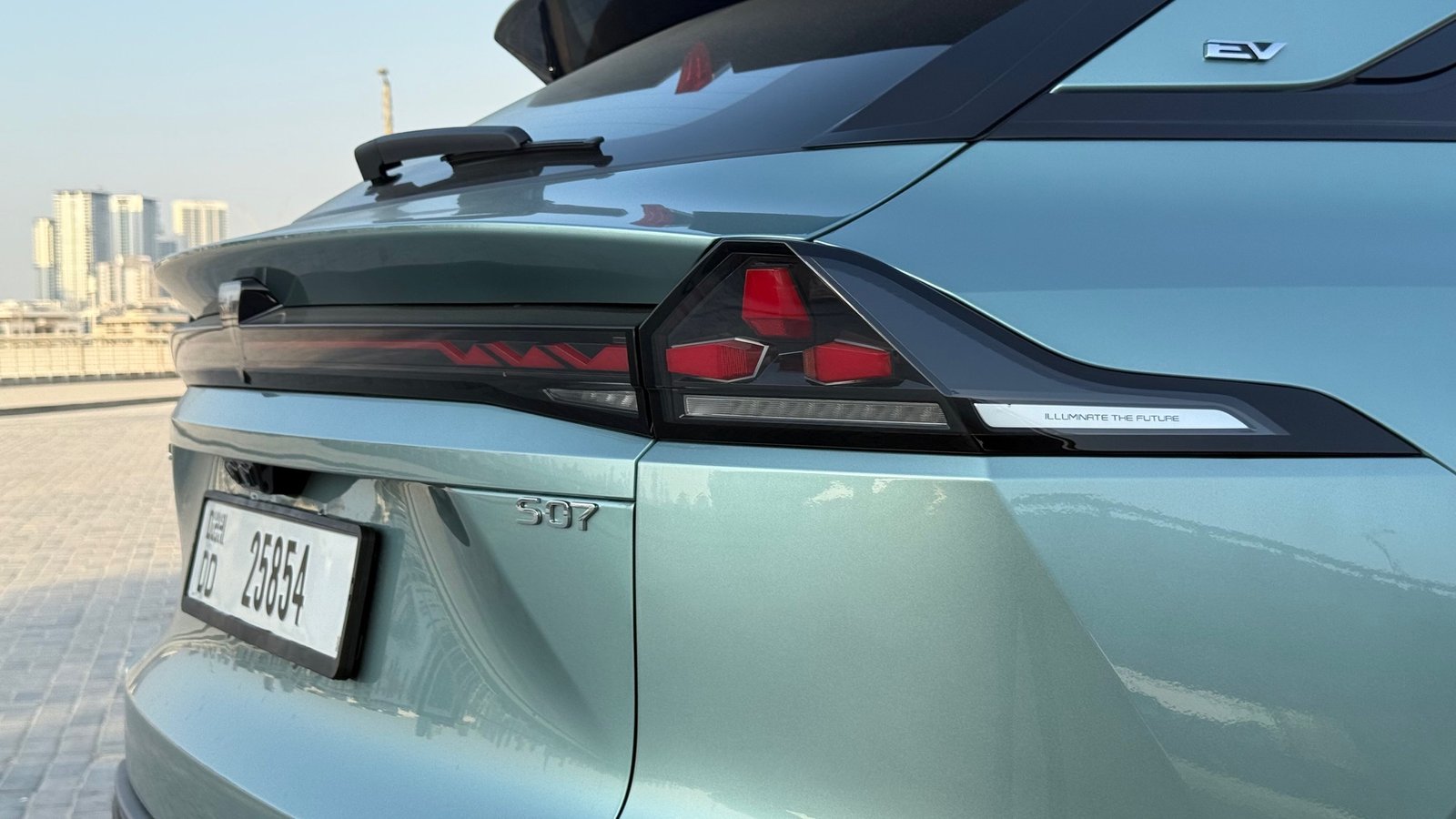
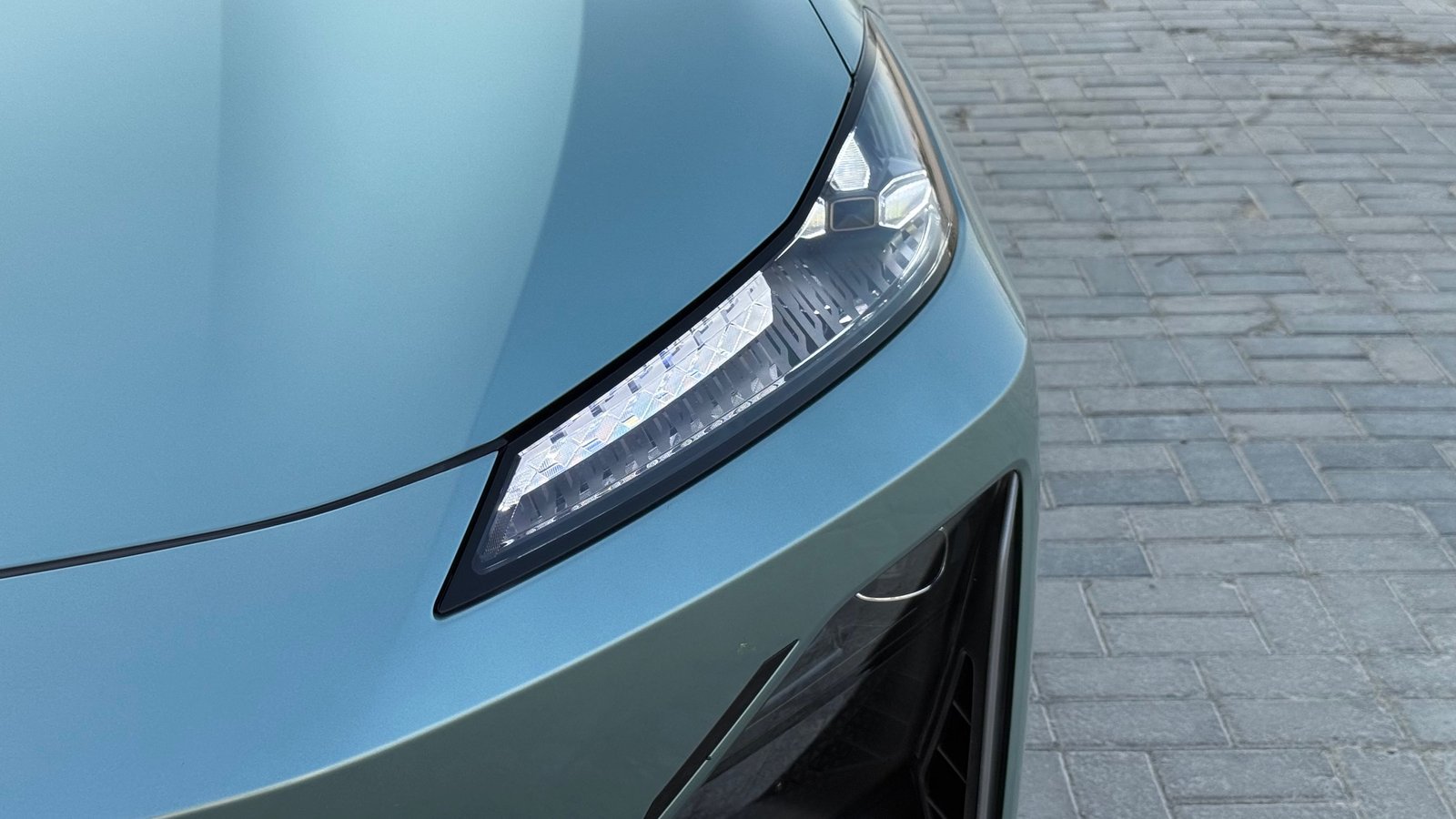
All Chinese brands here face the hurdles of winning hearts and minds, building out service, and proving long-term worth. The Deepal S07’s launch underlines both how far they’ve come and the work still ahead. Yet, if models like the S07 continue to deliver beyond expectations, I foresee Chinese EVs cementing a strong foothold in the UAE. In a landscape once dominated by Japanese SUVs and German luxury sedans, it’s telling that 2025’s most intriguing cars are increasingly wearing “Made in China” badges. As a reviewer, I remain cautiously optimistic: the Deepal S07 shows that Chinese EVs can not only compete but in some ways excel, offering UAE consumers more choices than ever for stylish, high-tech, efficient mobility. Competition is always good for the consumer – and this level of competition is pushing everyone to up their game.
In the expert’s final verdict, the Deepal S07 earns high marks as a well-rounded, forward-thinking electric SUV. It brings a fresh energy to the market – literally and figuratively – by combining Chinese innovation with local market insight. For buyers willing to step outside the traditional brands, the S07 delivers a rewarding experience that’s hard to ignore. Keep an eye on Deepal; if the S07 is any indicator, this newcomer is poised to deepen the shake-up of the UAE’s EV scene, proving that the future of driving might just have a Chinese accent.
2026 Toyota Land Cruiser FJ: A Retro Off-Roader Reimagined f

